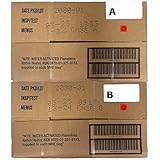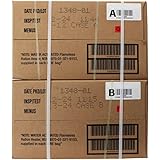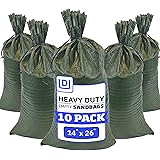Get Preparedness and Self-Reliance Tips. Subscribe Now!
Assessing the Situation
Understanding the Emergency
When it comes to a medical emergency, the first thing I learned is that you’ve gotta take a deep breath and assess the situation. Think about what’s going down. Is it something like a heart attack or maybe a bad fall? Each scenario calls for different responses, and knowing what you’re dealing with is crucial before jumping in.
It helps to look for signs that give insight into the individual’s condition. Are they conscious? Breathing properly? Sometimes, it only takes a quick glance or an ear to catch the distress signal. Remember, time is of the essence, so don’t dawdle when trying to grasp what’s actually going on.
Also, familiarize yourself with some common medical emergencies beforehand, so you’re not caught off guard. I can’t stress enough that a bit of prep can make a world of difference when adrenaline kicks in.
Calling for Help
Once you’ve assessed what’s happening, the next move is to call for help. Don’t hesitate here! Dial 911 or your local emergency number without wasting a moment. I’ve been where you’re likely to be, feeling that urgent push of needing to act, and a prompt call to professionals is often what can save a life.
When you do get through, be as clear and concise as possible. Provide them with all the necessary details — describe the situation, the person involved, and your location. I’ve learned that clear communication can shave minutes off response time, and that can be a game-changer.
While you’re on the phone, stay on the line if they ask you to. They might have instructions for you that could help stabilize the person until help arrives. It’s like a lifeline that keeps everyone steady.
Stay Calm Under Pressure
One of the toughest things when dealing with a medical emergency is keeping your cool. I can tell you from personal experience that panicking doesn’t do anyone any good. While it’s way easier said than done, focusing on your breathing can be a solid trick to keep anxiety at bay.
== > What if ... Get a FREE Subscription to PREPARE
Having a plan allows you to act as a rock in a storm for others. If someone’s hurt, they’re likely looking to you for reassurance. So, bring that calm energy! Kind words and a steadiness in your voice can work wonders, even if you’re freaking out inside.
And if you need a moment to gather yourself, that’s okay too. Just take a quick time-out to collect your thoughts, then jump back in to help. Everyone reacts differently, and your response will be what helps support others.
Providing Immediate Care
Basic First Aid Techniques
Now, as I’ve learned throughout my time prepping for emergencies, knowing some basic first aid goes a long way. If you’re looking to be a first responder, you should familiarize yourself with techniques like CPR and the Heimlich maneuver. Trust me, it’s one thing you really don’t wanna just wing.
I recall an incident where someone had a minor cut. By simply cleaning the wound properly and applying a bandage, I helped them avoid a serious infection. Always carry a first aid kit—it’s like having a little superhero stash at your fingertips.
Gauge the severity of the injury too. If someone needs urgent care, apply pressure to a bleeding area or keep them still and comfortable until professionals arrive. Every action matters when someone’s in distress!
Stabilizing the Victim
Stabilizing a victim can take many forms, and it’s crucial. In severe situations, you might need to keep them still or lay them down unless they’re in a position that could worsen their condition. I once had a friend faint, and keeping their legs elevated really helped improve blood flow until we got medical help.
Make sure to provide reassurance. A lot of times, just being there for them and letting them know that help is on the way can make them feel safer. It’s so calming when people know they’re not alone.
Monitor their condition while waiting for help to arrive. Watch for changes in consciousness or breathing that could indicate a decline in their state. Being aware ensures you can relay important information to the medical folks rushing over.
Using Available Resources
We’ve all got resources at our disposal. If you find yourself in a medical emergency, don’t overlook those around you. Enlist the help of bystanders if they’re willing. More hands can make things easier and sometimes lifting someone or simply fetching supplies can save precious time.
Also, access available tools, like your phone or nearby items. If you’re in a public place, find out if someone on-site is trained in first aid or CPR—their expertise can really make a difference.
And, to be honest, it’s a great opportunity to tap into your knowledge of local resources. Knowing where your nearest hospitals are or finding out if there’s a Quick Care clinic nearby can ease worries when you’re in crisis mode.
Post-Emergency Actions
Follow-Up Care
Once the immediate crisis is over, the focus then shifts to follow-up care. Whether it’s checking in with the victim post-incident or encouraging them to seek medical attention, it’s part of the process that can sometimes get overlooked in the heat of the moment. I’ve found that a simple message or a visit can really uplift someone’s spirits after a scare.
Make sure you gather details about what happened during the incident, as you may need to relay that information later on. Plus, it can bring a sense of closure having a thorough understanding of the event.
Sometimes, follow-up care can involve psychological aspects too. An emergency can shake you or someone else up emotionally. Don’t hesitate to talk to someone about it or suggest professional help if needed.
Debriefing and Learning
After the dust has settled, I always recommend taking a step back to debrief. Think about what went well, what could’ve been improved, and if there were gaps in knowledge or resources. Trust me, reflection is where I’ve learned some of my best lessons, and it helps prepare for the next challenge.
It might even be worth discussing the experience with others who were there if that’s possible. Sharing insights can spark valuable dialogue and foster learning among peers. You’ll often find that someone else caught something you missed, and that can deepen your understanding.
Commit to continuous learning, too. Taking a first aid or CPR class not only equips you with skills but also fuels your confidence the next time you’re faced with a similar situation.
Community Involvement
Don’t forget about the power of community—it can be a game-changer in enhancing everyone’s readiness for emergencies! I’ve personally joined local groups that focus on emergency preparedness, and it’s been a fantastic way to learn and support each other.
Participating in community workshops opens up channels for shared experiences. Everyone brings something to the table, so consider sharing your story or asking questions to get different perspectives.
Additionally, advocating for better resources, like accessible first aid kits or CPR classes in local schools, can make a significant difference. A community that prepares together fights better.
Maintaining Your Skills
Regular Training Sessions
Alright, let’s talk maintenance of skills because once you’ve learned, it’s crucial to keep that momentum rolling. Commit to regular first aid training sessions—whether that means refreshing your CPR certification or honing your first aid skills, this will keep you sharp.
Consider setting a schedule for yourself. For instance, I have on my calendar to revisit my first aid training every year. That way, it’s always fresh in my mind, and I feel ready for whatever emergency life throws my way.
Plus, with how quickly medical protocols can change, using resources that offer updated training ensures you’re not left in the dust with old techniques. Learning keeps you prepared and confident!
Staying Informed on Changes in Guidelines
Another vital aspect is staying updated on changes in medical guidelines. Healthcare is an ever-evolving field; new research and protocols come out often. So, a good habit is to follow legitimate channels—like healthcare organizations or reputable websites—to stay in the loop.
Engage in conversations with healthcare professionals and ask about the resources they recommend. They can provide insights that might not be widely known but could be incredibly helpful.
And don’t skip out on attending workshops, seminars, or conferences. Networking with other attendees can lead to fresh knowledge and connections that may assist in your quest for expertise.
Sharing Knowledge with Others
Finally, spreading the knowledge is just as vital as maintaining it yourself. If I’ve learned anything, it’s that sharing skills can empower those around you. Whether it’s through hosting a mini-training session for friends or participating in community days, there’s always a way to integrate teaching.
Consider partnering with local organizations that focus on safety and preparedness. If you feel passionate about what you’ve learned, leading a class or volunteering could impact many lives. I’ve really enjoyed when I’ve done this; it’s rewarding to know you’re contributing to a safer environment.
Plus, encouraging others to get involved will start a ripple effect. You never know how far your effort to educate can stretch. Helping someone else be prepared might just save a life one day!
FAQs
1. What should I do first in a medical emergency?
First, assess the situation calmly. Understand what’s going on—check for any immediate dangers, and then decide if you need to call for help while you start providing care.
2. How can I prepare myself for medical emergencies?
You can enroll in first aid and CPR courses and keep a well-stocked first aid kit at home or in your car. Regular training sessions help you stay ready!
3. What are the key skills I should learn for emergency response?
Basic first aid techniques, CPR, and how to use an AED (Automated External Defibrillator) are all essential skills that can save lives in emergencies.
4. How do I stay calm during a medical emergency?
Taking deep breaths and focusing on the task at hand can help reduce anxiety. It’s also helpful to remind yourself that you are capable and that help is coming.
5. Why is community involvement important in emergency preparedness?
Having a community that is prepared and trained can create a network of support in emergencies. It enhances collective knowledge, and more people trained means better outcomes in crises.
I hope you find this article engaging and informative!
Get Preparedness and Self-Reliance Tips. Subscribe Now!
Related Content
- How to Develop a Disaster Preparedness Strategy for the Elderly
- How to Develop a Disaster Recovery Plan for Businesses
- How To Protect Your Electronics From An EMP Attack – 7 Essential Tips
- How do I prepare for the unexpected in my disaster planning?
- Who should I follow for expert advice on self-reliant living?






